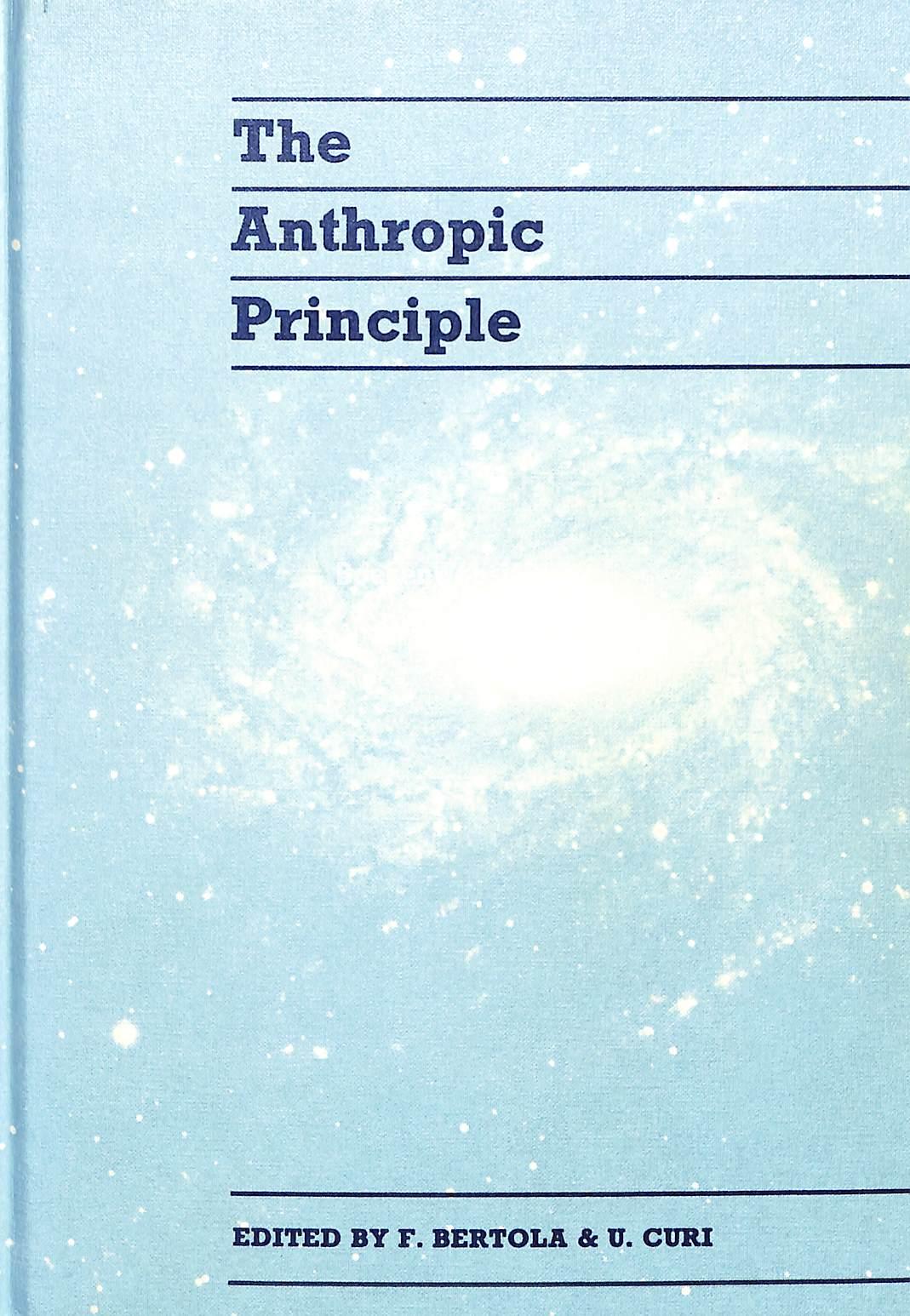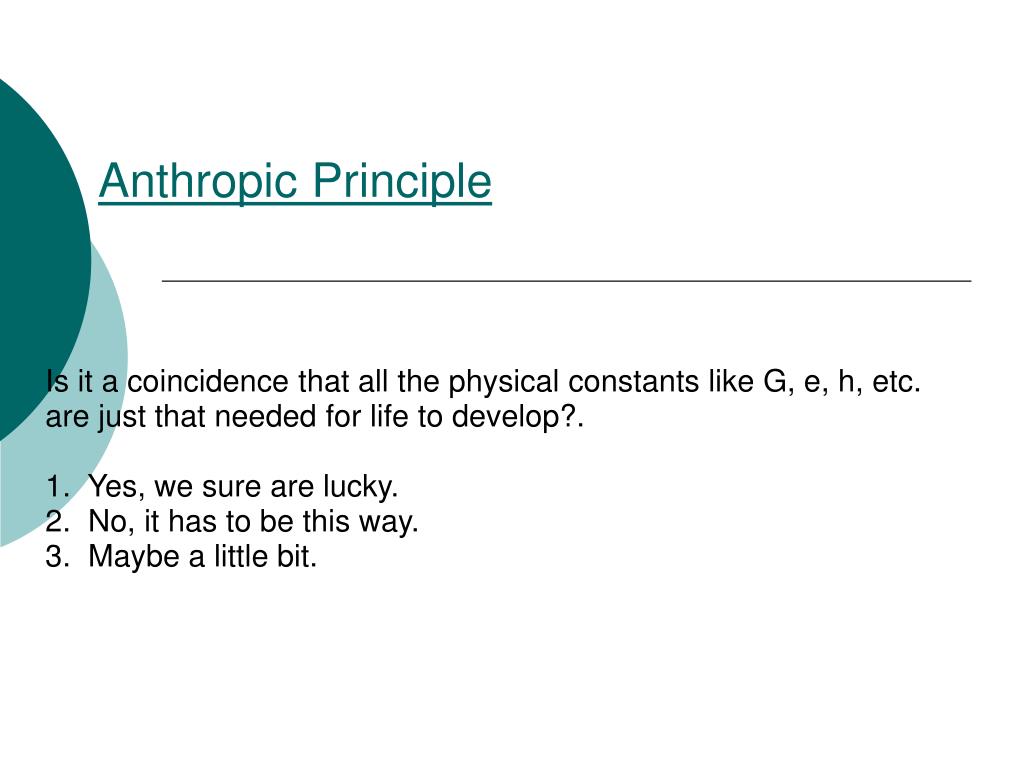
There but for fortune, this universe might not have permitted the evolution of intelligent life, so the anthropic principle is a scientific attempt to address the question "Why?"Įxplore the links on the next page for even more cosmological quandaries. They include the quantum physics-flavored participatory anthropic principle, which states that no universe can be real until it is observed, and the final anthropic principle, which holds that intelligence is a necessary property of the universe once created it can never be destroyed. The anthropic principle states that the fundamental constants have values that enable our observed universe to appear with anthropic entities inside of it that. He states that since we live in a universe capable of supporting life, then only life-supporting universes are possible.Ĭosmologists have devised more than 30 additional takes on the anthropic principle.


Weak anthropic principle: This response to anthropic coincidence may sound like a slice of common sense.Carter hypothesized that anthropic coincidences are part of the universe's very structure and that chance has nothing to do with it. In 1974, astronomer Brandon Carter tackled this quandary by introducing the anthropic principle. Just how is it that we're so fortunate? Of all possible universes, why did ours turn out like it did? So if certain conditions in our universe were just a little off, life would have never evolved. That's significant because if the original higher estimates had been correct, the universe would have blown apart eons ago.

Here's another example that Stenger reminds us of: A vacuum in the universe is a lot less dense than we previously thought (139 times less dense, in fact). Scientists refer to this as an anthropic coincidence, or a coincidence related to mankind's very existence. And that's handy because if the two powers were more evenly matched, stars wouldn't burn long enough for life to develop on an orbiting planet. The anthropic principle tackles an even greater question: Why is the universe itself just right for life?įor instance, when you compare the electromagnetic force to gravity, we find that electromagnetism is 39 times stronger, according to physicist and author Victor J. Most lay-level astronomy books define the anthropic principle by stating that the presence of. Why is it that conditions were just right for your survival? Cosmologists often apply this question to life on Earth with the Goldilocks principle, which ponders why Earth is "just right" for life. The correct definition of the anthropic principle states that humanity’s existence places severe constraints on the physical constants, structure, and history of the universe, on the Milky Way Galaxy, the solar system, and Earth and its life.


 0 kommentar(er)
0 kommentar(er)
